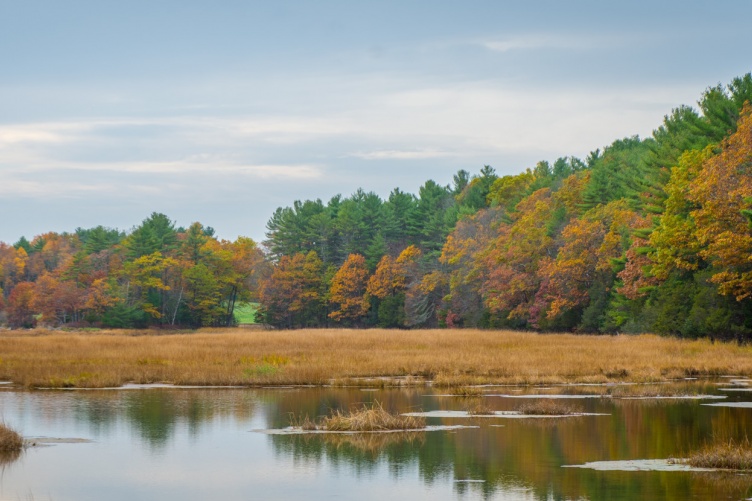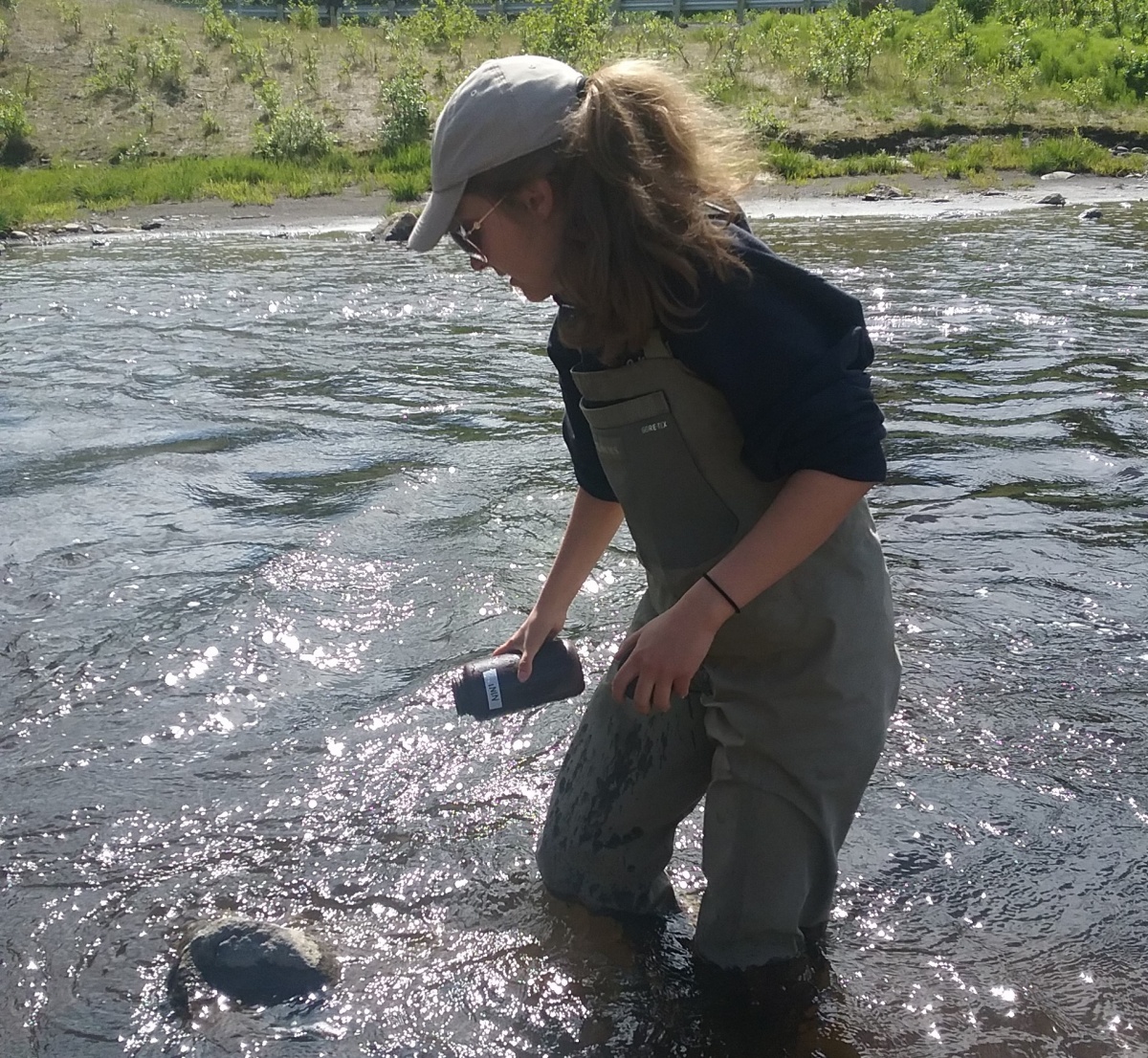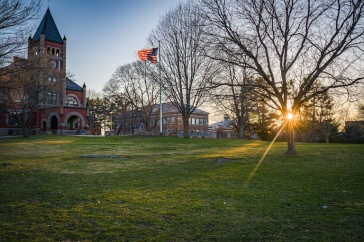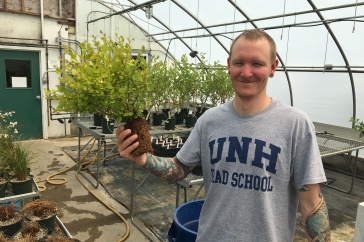
Great Bay in fall; credit to Scott Ripley
Anna Lowien, a masters student in the natural resources department, was recently awarded an inaugural Margaret A. Davidson Graduate Fellowship through the National Oceanic and Atmospheric Administration (NOAA) National Estuarine Research Reserve program.
The Margaret A. Davidson Graduate Fellowship is an exciting new fellowship program for graduate students at the national estuarine research reserves. In the coming weeks, 29 graduate students will begin their two-year fellowship in one of the 29 national estuarine research reserves around the country.
Lowien will be working at Great Bay National Estuarine Reserve in Newmarket, New Hampshire, where she has already been conducting her thesis research. Her research takes a big picture perspective on biogeochemical patterns in Great Bay, and asks how nutrient fluctuations influence the life in the estuary, such as eelgrass.
“Anna’s research will make an important contribution to understanding the internal processes that affect Great Bay’s ecosystem,” says her advisor, professor of natural resources and the environment Bill McDowell. “Many stressors have the potential to degrade eelgrass and other components of the Bay. Her research will provide some important first steps in understanding whether different inputs to the Bay like excessive nitrogen are consumed by organisms living in the Bay or just washed out to the ocean with the tides.”
According to Lowien, assessing these nutrient conditions will not only be helpful in learning how to better manage Great Bay and protect its ecosystem, but could also help inform decisions in water quality management and fishing industry practices.
“Coming from a biogeochemistry lab, we like to monitor everything we can,” Lowien said. “We have a saying that’s ‘Everything everywhere all the time’ because you can’t understand an ecosystem unless you’re really taking as many factors as possible into account.”

Having grown up near the Chesapeake Bay in Southern Maryland, Lowien has always had a heart for estuaries. “Studying water quality problems in coastal ecosystems is super critical to protect those systems, as well as restore them,” she said. “Because we as humans have left a huge footprint, it’s our generation’s job to reverse what we can. I’m studying aquatic biogeochemistry so that I can contribute to that.”
This fellowship will be Lowien’s second estuarine research experience with NOAA, the first being the Ernest F. Hollings Undergraduate Scholarship program, in which she spent a summer interning at the Kachemak Bay National Estuarine Research Reserve in Homer, Alaska.
“The biggest thing that this fellowship allows me is the opportunity to collaborate with the community of scientists and volunteer at Great Bay research reserve,” said Lowien. “After my experience in Alaska, I knew that I wanted to do this kind of work again. Building community and sharing science—that’s what it’s all about.”
Lowien plans to graduate in May 2021, with hopes of continuing onto a PhD in natural resources.
-
Written By:
Lily Greenberg '21G | Grad School



















































